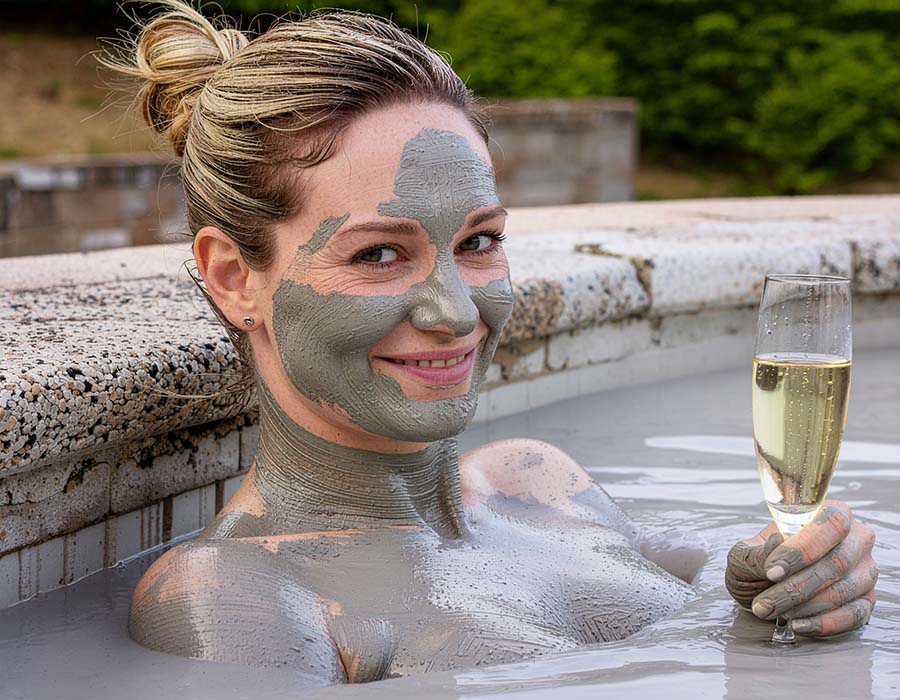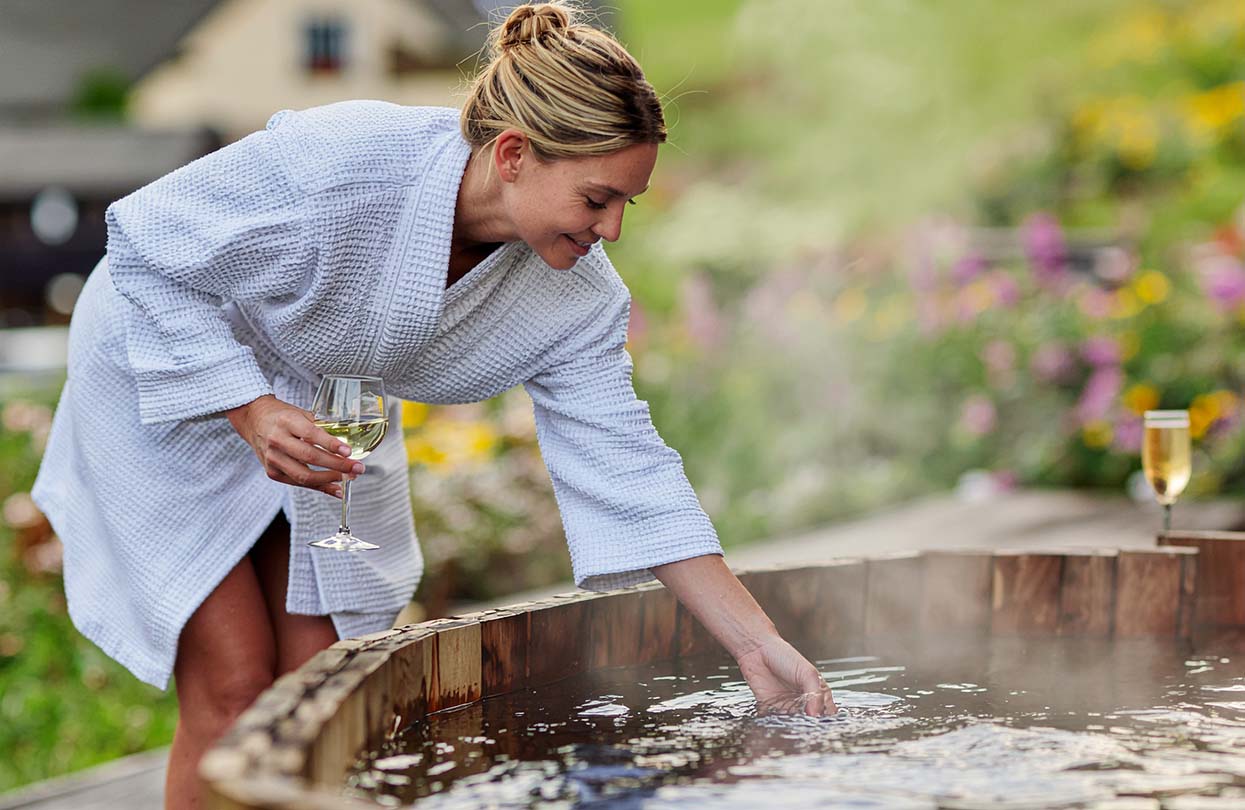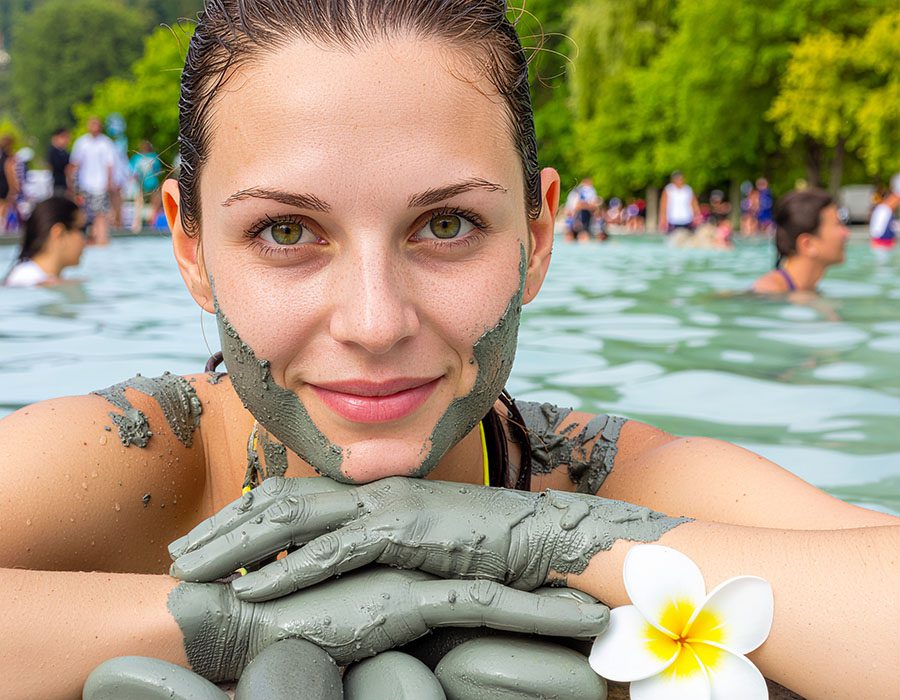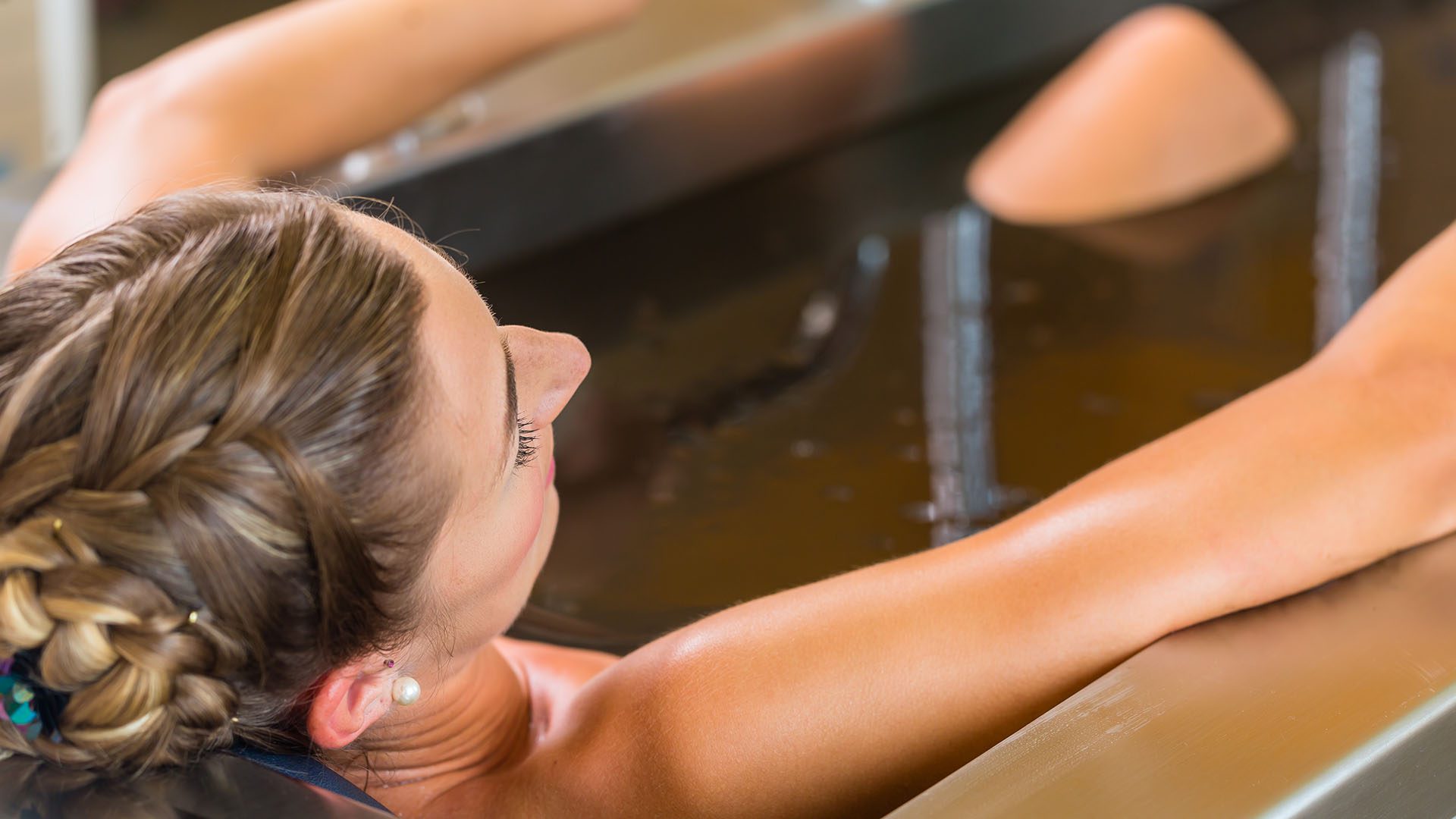|
Listen To Article
|
There’s a certain kind of joy that sneaks up on you when you’re not looking. Mine came wrapped in steam and silence, in a small spa town in southern Germany — with a flute of champagne in one hand and my body half-submerged in steaming moor mud.
Bad Buchau and Bad Wurzach weren’t places I had heard of before this journey. They didn’t carry the international spa-town cachet of Baden-Baden or the courtly heritage of Bad Kissingen. And yet, it was here — far from the grand colonnades and formal rituals — that I encountered something even more valuable: unguarded pleasure.
The Invitation
I arrived in Bad Buchau on a pale summer afternoon, the air soft with the scent of nearby meadows. Nestled beside Lake Federsee — a placid, reed-fringed basin famed for its prehistoric stilt houses and medicinal moor — the town exudes a kind of humble intimacy. There are no dramatic alpine vistas here, no designer boutiques, no overstated architecture. Just a quiet promise of care.
My appointment at the Federsee Therme began not with a checklist, but with a question: “Would you like a glass of sekt before your treatment?” The staff’s warmth was matter-of-fact, not performative. As if sipping sparkling wine while preparing to be slathered in peat was the most natural thing in the world. And perhaps, here, it was.

Champagne & Clay- My Mud-Bathed Escape to Germany’s Joyful Spa
Chocolate Mud, Candlelight, and Steam
The moor mud was being stirred slowly in a side room — warm, dark, glossy. A spa therapist invited me to dip my fingers in. It was rich and silky, with the scent of wet earth after rain. They called it “black gold,” and indeed it was: harvested sustainably from local wetlands, rich in humic acids and trace minerals, and revered for its anti-inflammatory and calming properties.
The treatment room was dimly lit, almost reverent. No piped-in flutes or synthetic oils. Just candlelight, a wooden tub, and the soft sound of mineral water being poured. As I stepped in, the mud enveloped me like velvet — heavier than water, but strangely comforting. My body slowed. My thoughts followed.
Between soaks, I was handed a small glass of bubbly — local, dry, with just enough fizz to tickle the edge of indulgence. I reclined, laughed quietly at the surreal delight of it all, and realised something I hadn’t in a while: I felt not just relaxed, but deliciously alive.
Bad Wurzach — Vintage Tubs and Modern Stillness
The next day, I travelled to Bad Wurzach, a short drive through wildflower-dotted countryside. The Vitalium spa here is tucked into a quiet corner of town, where steam curls into the morning air and guests pad about in plush robes like contented ghosts.
Everything felt slower here. Less curated. More lived-in.
My treatment involved an old-fashioned wooden soaking tub — deep, burnished, almost theatrical in its simplicity. The moor was thicker here, darker, steaming with a scent that was more forest than flower. I lowered myself in with reverence, surprised again by how quickly my limbs surrendered.
The spa attendant placed a glass of sekt on the edge of the tub and simply nodded. No chatter. No pitch. Just presence.

The next day, I travelled to Bad Wurzach, a short drive through wildflower
The Science of Stillness
In these two towns, I learned that the science of healing doesn’t have to be sterile. The moor mud — dense with bioactive compounds — does its part: increasing circulation, easing joint pain, reducing inflammation. But the setting matters too. The candlelight. The laughter. The stillness.
Read More: 10 Unmissable Destinations for Luxury Wellness Travel in 2025
It’s a full-body ritual where biology meets belief. The mud draws out tension. The warmth anchors the mind. The champagne? It reminds you that healing can be celebratory.
A German Kind of Decadence
There is a German word I kept encountering during my trip: “Wohlbefinden.” It translates loosely to “well-being,” but also implies a deeper state of feeling balanced, content, whole. That word clung to me more than any technical term for the moor’s pH level or mineral content.
At Bad Buchau and Bad Wurzach, wohlbefinden wasn’t aspirational — it was practical, habitual, even joyful. Here, mud isn’t luxury; it’s lifestyle. Champagne isn’t excess; it’s enhancement. You’re not escaping life — you’re immersing yourself in its most elemental comforts.

There is a German word I kept encountering during my trip- Wohlbefinden
The Return
When I returned to my hotel, still warm from the soak and a little giddy from the sekt, I stood at the window and watched the sky turn lavender over Lake Federsee. A breeze moved the grasses. The church bell rang once. I felt no urgency, no hunger, no weight.
And in that stillness, I understood something I hadn’t before: rest doesn’t have to be earned. It doesn’t have to follow exhaustion or burnout. It can simply be taken — joyfully, freely, without guilt.
That evening, I didn’t scroll or plan or even speak much. I lay on the bed with damp hair and a quiet smile, the scent of peat still clinging to my skin, and the fizz of champagne still dancing lightly on my tongue.
Read More: Tracing Germany’s Roads & Riches: Black Forest Route Road Trip
Weeks later, what stays with me isn’t just the glow of my skin or the looseness in my back. It’s that unexpected marriage of earth and elegance. That moment in a mud tub where time paused, and I remembered what it feels like to be soft, and silly, and completely, wonderfully human.
Bad Buchau and Bad Wurzach didn’t just restore me. They reminded me that healing doesn’t always whisper — sometimes, it giggles. ◼
Subscribe to the latest edition now by clicking here.
© This article was first published online in Aug 2025 – World Travel Magazine.



